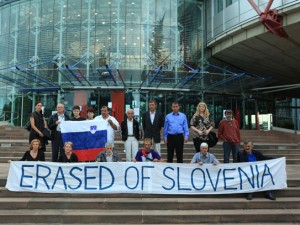Book chapter about local and migrant domestic workers in Slovenia
20. 6. 2015 | Politics


Migrant Domestic Workers and Family Life: International perspectives, eds. Maria Kontos, Glenda Bonifacio, Palgrave Macmillan, 2015
Majda Hrženjak and Mojca Pajnik wrote the chapter ‘In the Grips of Work/Family Imbalance: Local and Migrant Domestic Workers in Slovenia’ in Migrant Domestic Workers and Family Life: International perspectives, edited by Maria Kontos and Glenda Bonifacio (Palgrave Macmillan, 2015).
This timely and innovative book delivers a comprehensive analysis of the non-recognition of the right to a family life of migrant live-in domestic and care workers in Argentina, Canada, Germany, Italy, Lebanon, Norway, the Philippines, Slovenia, South Korea, Spain, the United Arab Emirates, the United States of America, and Ukraine. Combining legal, sociological and social policy perspectives, it takes an interdisciplinary approach to international and national legal frameworks, the political economy of globalised reproductive labour, and the experience and coping strategies of migrant domestic and care workers. Highlighting constructed, ideological and imagined responses to life away from home, it offers theoretical, empirical and international perspectives on the right to a family life. Bringing together established and emerging scholars from a variety of academic disciplines, it focuses in particular on the voices of migrant domestic workers and their positioning as active subjects with agency to articulate their needs and claims.
About the chapter
This chapter analyses how care work affects care workers’ resources for balancing family and work life, and compares experiences of local and migrant care workers in Slovenia. While numerous research show that families across EU compensate for the care deficit by outsourcing care work to migrant workers, in Slovenia local women, including second and third generation migrants from former Yugoslavia, prevail in home-based care work, in particular in child and elder care. In contrast, the area of cleaning private households—low valued and labour intensive work—is more open to recent female migrants. Another peculiarity of Slovenia is the prevalence of live-out work arrangements which can be explained by high rate of local women taking over home-based care work.
Online order of the book.




